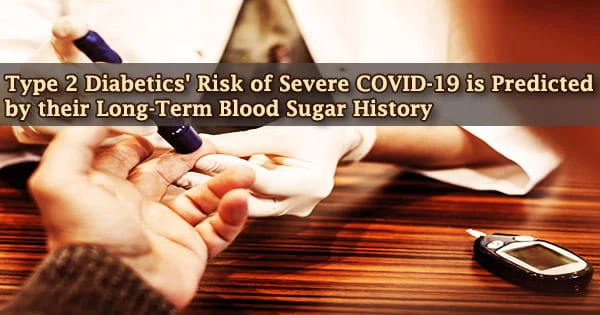According to a study using anonymized health care data, people with type 2 diabetes who catch COVID-19 are about 50% more likely to end up in intensive care if they had poorly managed their blood sugar levels over the long run than those with better long-term glycemic control.
Patients taking the standard diabetes-control prescription metformin, or a combination of metformin and insulin, or corticosteroids had a lower risk, according to the study, which looked at numerous potential implications on COVID-19 severity among diabetics.
“We find that two to three-year longitudinal glycemic levels better indicate the risk of COVID-19 severity than measurements which look at a shorter period of time,” said Deepak Vashishth, corresponding author, professor of biomedical engineering, and director of the Center for Biotechnology and Interdisciplinary Studies at Rensselaer Polytechnic Institute. “We hope these insights aid physicians in better treating and managing high-risk patients.”
The study, titled “Evaluation and management of COVID-19-related severity in people with type 2 diabetes,” looked at records from over 16,000 people with type 2 diabetes and COVID-19 between 2017 and 2020. It was published in BMJ Open Diabetes Research & Care.
Patients with type 2 diabetes are unable to control the amount of sugar glucose in their bloodstream without the use of medication and careful dietary management. Chronically high blood sugar levels, which are usually measured as a percentage of hemoglobin A1c (HbA1c) in the blood, can harm a range of organs and systems, including the circulatory, neurological, and immune systems.
Vashishth, a bone expert, studies the impact of diabetes on bone. Poor glycemic management causes molecules known as advanced glycation end-products (AGEs) to accumulate, degrading the quality of bone over time.
People knew that diabetes was a risk factor for COVID-19-related outcomes, but not all diabetic patients are the same. Some people have a longer history of diabetes, some have more severe diabetes, and that has to be accounted for.
Bowen Wang
His research group was looking into whether measurements of longitudinal glycemic control measures of blood sugar levels averaged over two to three years could provide a more accurate predictor of bone fracture risk in diabetics than the current standard predictor, which relies on measurements of bone mineral density, at the time the SARS-CoV-2 pandemic broke out.
Increased oxidative stress and inflammation, both of which are risk factors for COVID-19 and other respiratory disorders, are known to be caused by AGEs. According to Bowen Wang, the first author and a doctoral student in Vashishth’s lab, the same longitudinal glycemic control measurement they were testing as a predictor of bone fracture risk might be useful in predicting the severity of COVID-19.
Wang divided type 2 diabetic patients’ records into two groups: those with ‘adequate’ longitudinal glycemic control of 6 to 9%, and those with ‘poor’ glycemic control of 9 percent or higher over two to three years.
Those with poor glycemic control were 48 percent more likely to require treatment in an intensive care unit, according to his analysis of the two groups. A 1% increase in longitudinal HbA1c is directly connected with a 12% increase in the probability of landing in the ICU, according to another measure.
Other statistically significant data revealed that diabetics on metformin when they contract COVID-19 have a 12% reduced risk of attending the ICU, those on metformin and insulin have an 18% lower risk, and those on corticosteroids have a 29% lower risk of visiting the ICU.
“People knew that diabetes was a risk factor for COVID-19-related outcomes, but not all diabetic patients are the same. Some people have a longer history of diabetes, some have more severe diabetes, and that has to be accounted for,” said Wang.
“What this study does is to better stratify the level of diabetes within the population, so diabetic patients aren’t treated as a single population without any differences among them.”
Benjamin S. Glicksberg and Girish N. Nadkarni of Mount Sinai’s Icahn School of Medicine collaborated with Vashishth and Wang on the study. The National Institutes of Health provided funding for their research.





